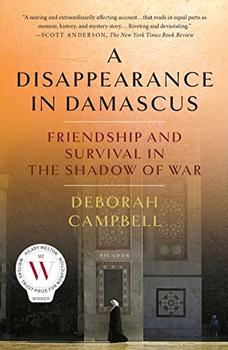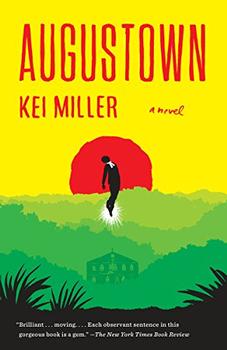Summary | Excerpt | Reviews | Beyond the book | Read-Alikes | Genres & Themes | Author Bio

The arc of history, says Bob Shacochis, follows "the swing of sorrow and triumph through humanity, sorrow, and then, finally, crippling grief fading to obscurity." Even if, as Shacochis points out, Americans usually want little to do with history, they ought to be pretty familiar with this narrative, which the United States has traced over and over again as a major player on the world stage. The Woman Who Lost Her Soul is a breathtaking and sweeping look at this game of chess played by the powerful in Washington, executed in key areas all over the globe. If, as the book claims, a nation's genesis is in war, this novel visits quite a few of the world's hot spots – Haiti and the Balkans, among others - before circling back to home base.
The eponymous "woman" who has lost her soul is Dorothy Kacevic, daughter of a high-ranking American diplomat, Steve Chambers. Before emigrating to the United States as a young boy, Steve Chambers (aka Stjepan Kacevic) witnessed, firsthand, the horrors of war in his native Croatia. These acts carve an indelible mark on the boy's psyche, schooling him early in the complex science of war. He learns, at this young age, who the pawns in this game almost always are. As it turns out, Dorothy (aka Dottie) who surfaces and resurfaces in various incarnations as Renee Gardner, Jackie Scott and Carla Costa, is very much a product of her father's agenda - a woman full of guile who can score powerful triumphs in her own battles. She is a potent weapon in the high-risk game of espionage and the many schemes the men in the novel stage.
This is a book that rides high on testosterone. In the power circles that matter, it is men, the gang whom Shacochis refers to as the "Friends of Golf" who make the decisions. They decide outcomes. Utterly mystified by most women, these men then replace them with mythic, imagined creations tailored to specific fantasies. Shacochis tries to explain away the confusion: "The daily cosmetic painting and repainting of identity seemed to create a psychic disconnect between who a woman was and who she needed to be in her dissatisfaction with herself, and how, in the midst of all this flux and fabrication, the redirection and repackaging and metamorphosis, was a man supposed to hold a clear idea of who any woman, even the closest to him, was?" Yes, these men really have no clear idea of who the women closest to them truly are. So it is that Dottie Chambers is the product of a guy's fantasy - first her father's and then a succession of men who fall for her charms. I couldn't help but detect a whiff of misogyny in Dottie's theoretical construct - she sometimes felt less like a living breathing woman than a man's fantasy realized into flesh. It is to Shacochis's immense credit that Dottie traces a slow evolution to the person she eventually becomes.
This is not an easy book to read - for one thing it is over 700 pages long. For another, the attentions that Steve Chambers bestows on his daughter are enough to creep you out. It is also a difficult book to digest. The scope of American intervention and the incredible machinery set in place to keep the giant appeased are depressing to say the least. (See Beyond the Book) Yet it is hard to look away. Like the country for which she is supposed to be a metaphor, The Woman Who Lost Her Soul might be deeply flawed, sometimes crass and vulgar, but she is also vulnerable and vividly unforgettable.
Shacochis digs deep here exploring the myriad forces that have made America who she is. At one point, he describes Dottie's character as "patented and inviolable, cobbled together and pounded into shape from its kaleidoscopic shamble of bits and pieces." This, in fact, sounds much like the United States. We have cobbled together our various pieces of history, ill-fitting though some might be, into an inviolable force to contend with. The Woman Who Lost Her Soul is a gripping novel that explores big concepts: of nationhood, citizenship, identity, and exactly where one human life fits into these juggernauts.
As for history, we are on that hamster wheel, enjoying similar triumphs and making similar mistakes over and over again. "So how's the future looking these days," Dottie asks, at one point. "Much like the past," is the answer she receives. "New forms for old misery."
That sounds about right.
![]() This review was originally published in The BookBrowse Review in November 2013, and has been updated for the
September 2014 edition.
Click here to go to this issue.
This review was originally published in The BookBrowse Review in November 2013, and has been updated for the
September 2014 edition.
Click here to go to this issue.

If you liked The Woman Who Lost Her Soul, try these:

by Deborah Campbell
Published 2018
In the midst of an unfolding international crisis, renowned journalist Deborah Campbell finds herself swept up in the mysterious disappearance of Ahlam, her guide and friend. Campbell's frank, personal account of a journey through fear and the triumph of friendship and courage is as riveting as it is illuminating.
Winner of the Hilary Weston ...

by Kei Miller
Published 2018
In the wake of Marlon James's Man Booker Prize–winning A Brief History of Seven Killings, Augustown - set in the backlands of Jamaica - is a magical and haunting novel of one woman's struggle to rise above the brutal vicissitudes of history, race, class, collective memory, violence, and myth.
Your guide toexceptional books
BookBrowse seeks out and recommends the best in contemporary fiction and nonfiction—books that not only engage and entertain but also deepen our understanding of ourselves and the world around us.